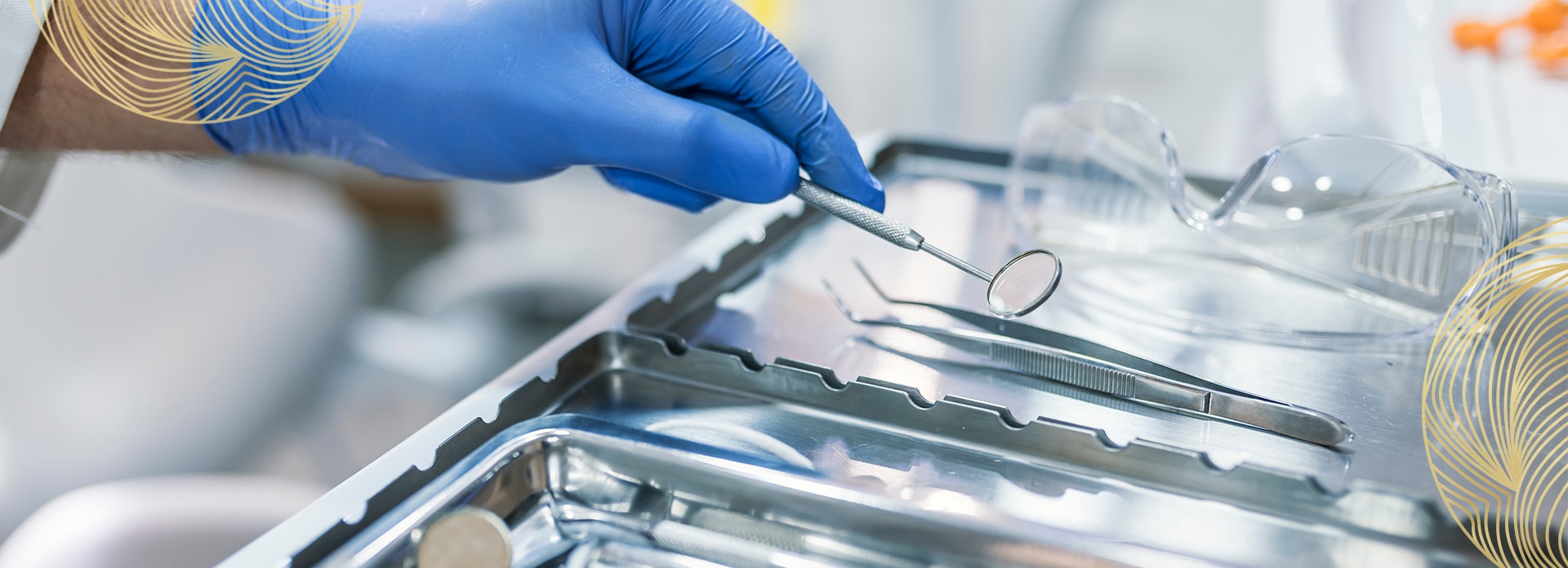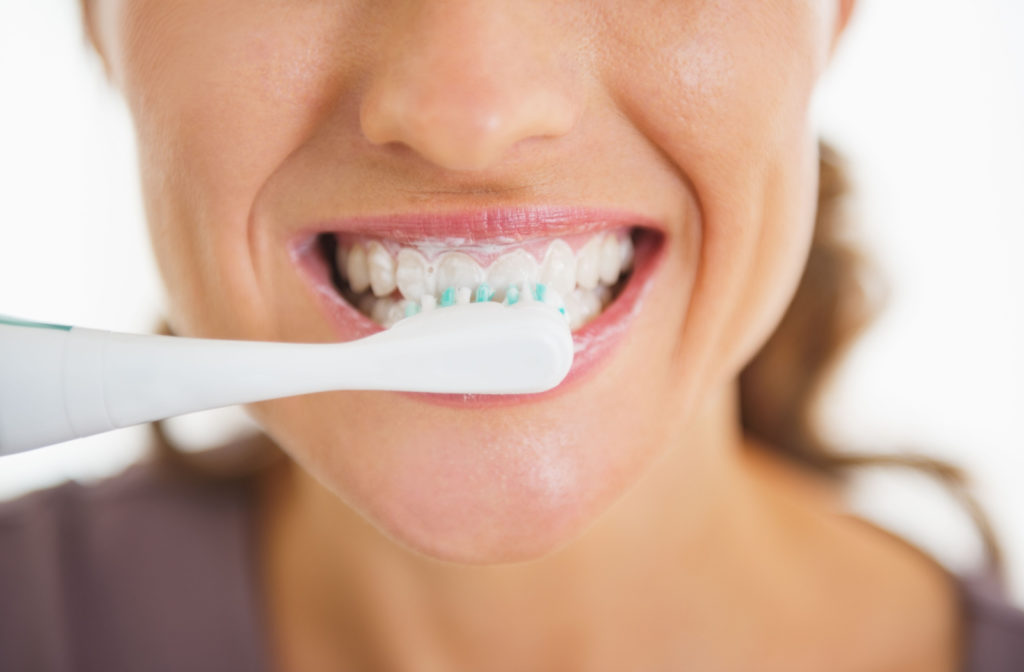You should brush your teeth twice a day—once in the morning and once in the evening. In general, you should brush your teeth right after you wake up—before you eat breakfast. If you prefer to brush after eating—which can help remove food debris from breakfast—you should wait at least 30 minutes for your saliva to displace some of the acids that sit in your mouth after eating.
Taking daily steps to maintain good oral health can help prevent future dental concerns from arising—and that includes getting regular dental exams and cleanings.
Even with regular brushing, routine dental cleanings are important. They provide an opportunity to get a full picture of your dental health and explore other treatments that can help your teeth shine, like teeth whitening or veneers and porcelain crowns.
Why Is Brushing Your Teeth Important?
A whole collection of bacteria and other tiny organisms call your mouth home. They often come in from the food you eat and drink, and when their delicate balance is interrupted by the arrival of sugars, plaque is sure to follow—gum disease and cavities might not be too far behind, either.
Plaque buildup is just the start of the problems it can cause. Regular brushing helps stop plaque from forming and turning into tartar—which can only be removed during a professional dental cleaning.
What Does Brushing Your Teeth Prevent?
In general, brushing your teeth is essential for maintaining your oral health, but some of the specific problems brushing twice a day can prevent include:
- Tooth decay
- Gum disease
- Surface stains on teeth
- Bad breath
- Dental emergencies
What’s the Right Way to Brush Your Teeth?
Technique can be as important as routine—the wrong brushing technique could cause unexpected, unpleasant effects on your teeth and gums. In general, we recommend you stick to the following steps for brushing your teeth:
- Choose an electric soft-bristle toothbrush.
- Apply a small, pea-sized amount of toothpaste to the bristles.
- Stand in front of a mirror so you can see your teeth clearly while brushing.
- Hold your toothbrush at a 45-degree angle to your gum line and follow the shape of your teeth and gums
- If you’re using a manual toothbrush, brush in gentle, circular motions.
- Start on the outside surface of your teeth. Then, repeat on the inner surfaces and chewing surfaces of your teeth, making sure to work your way through both the top and bottom of your mouth.
- Don’t forget to brush your tongue so you can remove bacteria that cause bad breath.
Should You Brush Your Teeth More than Twice a Day?
The ideal brushing frequency is twice a day, before or after breakfast and before bed. However, in some cases, it might be advisable to brush your teeth after lunch or other meals as well—especially if you consumed particularly acidic or sugary foods and beverages, such as pasta, soda, or citrus fruit. If you are undergoing orthodontic treatment, it is also advisable to increase your brushing frequency.
Brushing your teeth before bed is especially important because it helps remove your entire day’s accumulated food particles, plaque, and bacteria—which helps keep your mouth clean while you sleep.
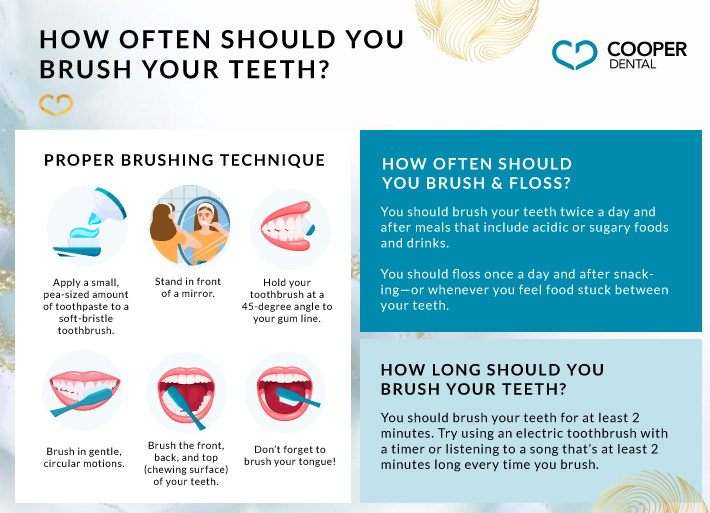
Can You Brush Your Teeth Too Much?
Excessive brushing—sometimes called over-brushing—can be harmful to your teeth and gums. Over-brushing can be defined as brushing your teeth too often or too aggressively. The effects of brushing too hard or too often can include:
- Enamel erosion
- Receding gums
- Sensitive teeth
How Long Should You Brush Your Teeth?
You should brush your teeth for at least 2 minutes. Many modern electronic toothbrushes have built-in timers to help you clean your teeth and gums thoroughly.
If you prefer to use a manual toothbrush, try to find a song you like that’s 2–3 minutes long. Listening to it each time you brush your teeth can help you brush for the right amount of time—and help make brushing your teeth more fun!
How Often Should You Floss?
You should floss once a day and after snacking—ideally before brushing your teeth. Flossing helps remove stuck bacteria and food from between your teeth and along your gum line. Brushing after you floss, instead of before, helps remove that debris entirely—rather than letting it remain in your mouth.
If you tend to brush your teeth after you eat breakfast, you might want to choose to floss in the morning before brushing. Or, you may want to floss at the end of the day to remove all the accumulated food debris from the day.
Brushing removes 65% or the plaque on the teeth, flossing catches the remaining 35%.
Can You Over-Floss?
In general, flossing too much is typically only harmful if you are not flossing correctly. You may need to floss more than once a day when you feel food stuck between your teeth, but beyond those situations, you can stick to flossing once a day.
While you can’t floss too much, you can floss too aggressively. If you apply too much pressure while flossing, you could irritate or damage your gums.
As an alternative to traditional flossing, you can use a water flosser such as a Waterpik. A Waterpik helps wash away food particles and plaque from your teeth and gums to help prevent tartar buildup. A Waterpik is a great choice for people who struggle with traditional flossing or have orthodontic appliances or braces.
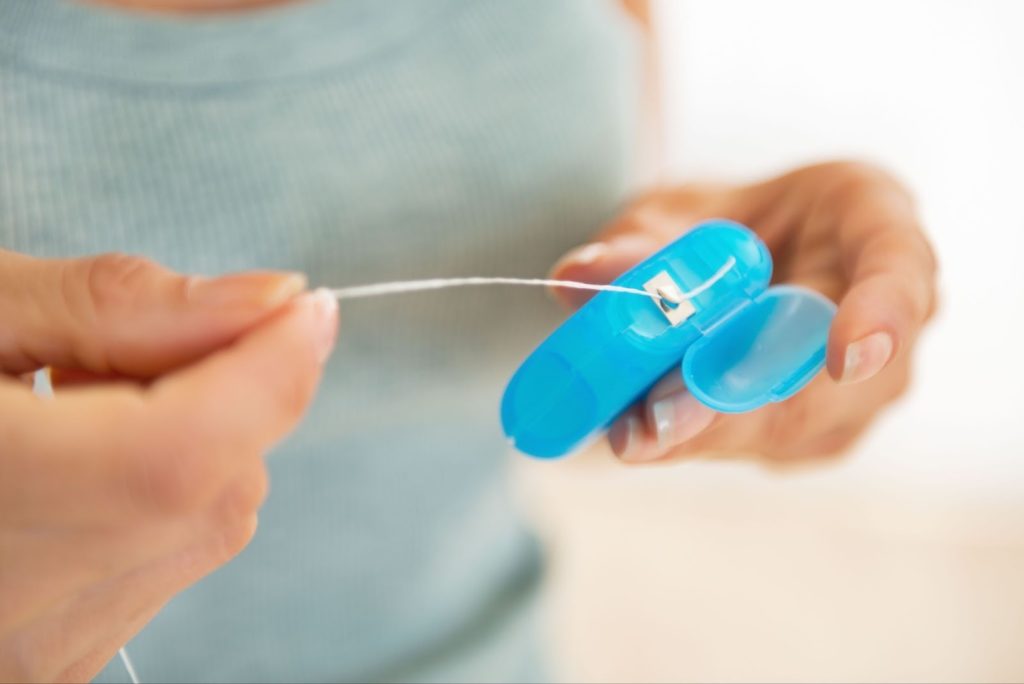
Take Care of Your Oral Health Today
Nobody wants to find out what happens when you don’t brush and floss your teeth. Consistent brushing, flossing, and dental checkups contribute to a healthy smile and can help prevent issues like gum disease.We know everyone has different goals for their teeth, and we want to help you reach them with a personalized dental experience at Cooper Dental.
Book an appointment today to visit us in southwest or downtown Calgary.

